The Butler Museum: Siblings rebuild renowned porcelain collection
- Published
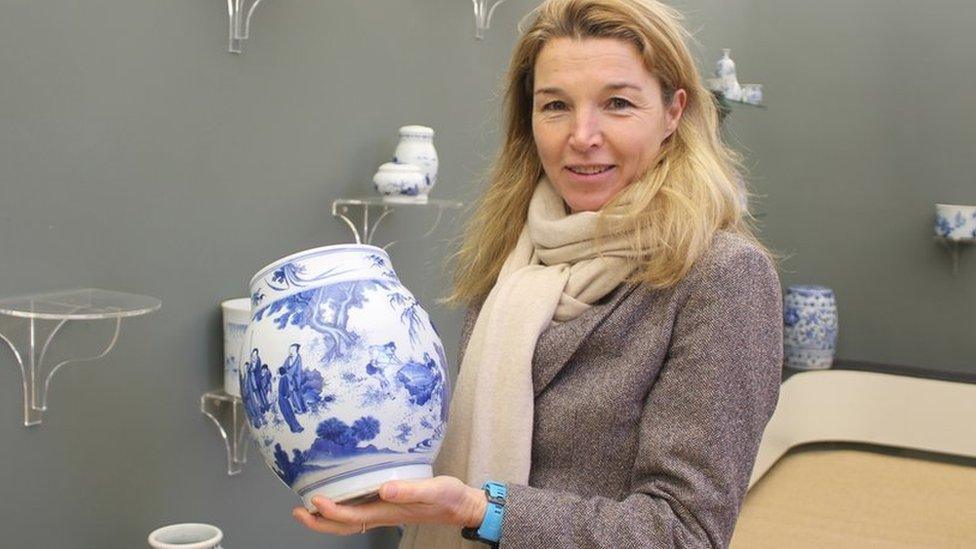
Visitors to the Butler Collection are allowed to handle the pieces
When a former diplomat gifted his world-famous collection of Chinese porcelain to his four children, he could never have imagined it would have such an undiplomatic outcome.
Sir Michael Butler - once an aide to Margaret Thatcher - spent five decades collecting the 17th Century ceramics which, by the time he died in 2013, were valued at around £8m.
Following his death, his youngest children, Katharine and Charles, fought unsuccessfully to keep the collection together and prevent their older brother and sister from removing their share.
The battle took them all the way to the High Court and in 2016, following a judge's ruling, the 500 pieces were divided between the siblings, leaving just half the collection remaining.
Now, seven years on from the headline-grabbing case, Katharine Butler has been buying back some of the missing pieces at auction and "filling the gaps" with new purchases.
And she is once again welcoming visitors to the museum her father built behind the family home in Dorset.
"This one is my favourite," she said, picking up a tall, white, embossed vase.
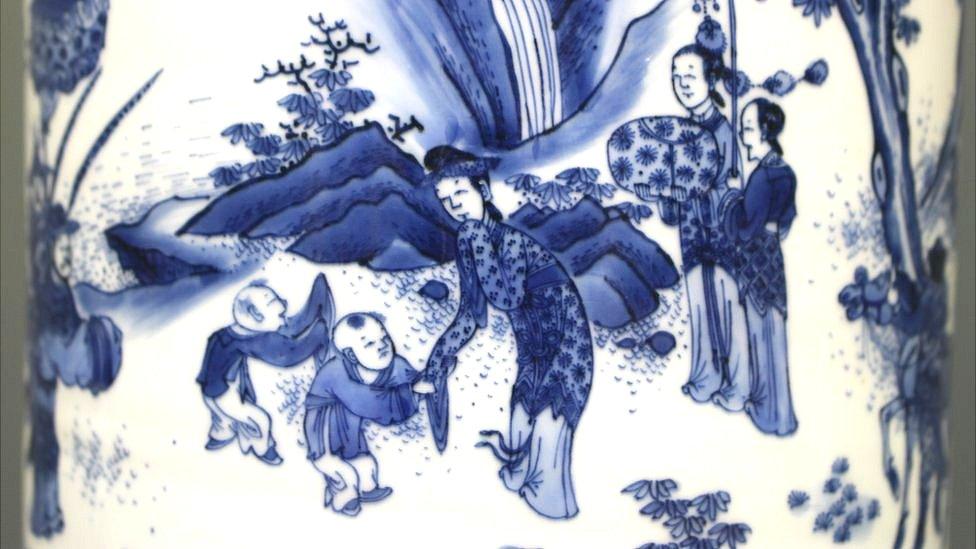
Sir Michael Butler worked with Chinese scholars to find out the stories behind each design
"It's carved with this incredible decoration. It's so subtle and you can only really appreciate it in person, which is the essence of this place. You can't do it justice in print."
The private museum, which closed when the collection was divided, is rare in allowing visitors to handle the objects, despite their rarity and value.
"The wonderful thing about porcelain, and the unique thing about this place, is that you have to handle it to appreciate it," she said.
Sir Michael, a former ambassador to the EU, became fascinated with the so-called "Transitional" era of Chinese ceramics that was, until recently, shunned by collectors.
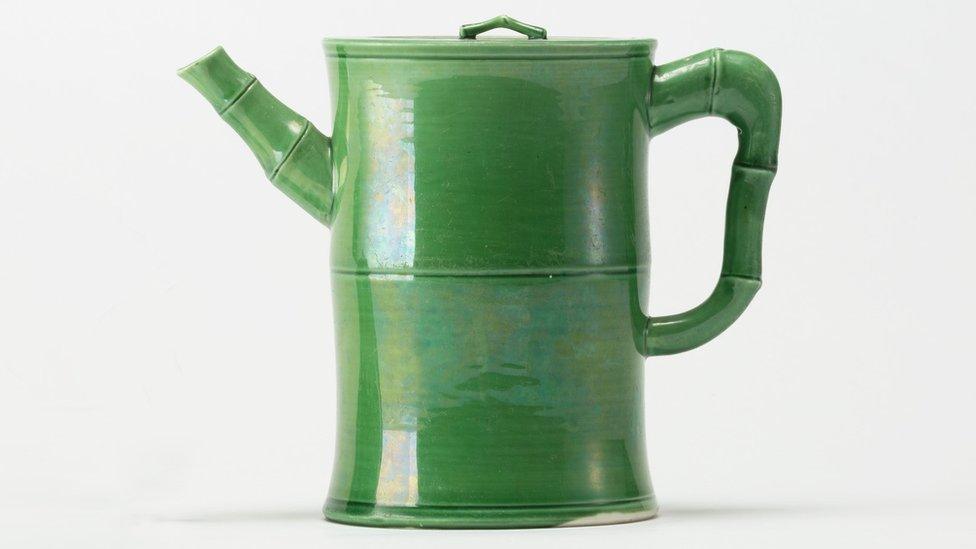
Sir Michael bought his first pot in 1960, sparking a life-long passion for Transitional porcelain
During the period - at the end of the Ming and start of the Qing dynasties - the Imperial kilns were closed, leaving potters and painters to find new markets and to experiment with designs and techniques that had previously been closely supervised.
Ms Butler explained: "There was this belief that only Imperial supervision was a mark of quality so anything made in the 17th Century was deemed not very interesting.
"When my father started collecting, it was a completely unknown period.
"He picked up pieces for 10s and 20s of pounds and the collectors of the time were simply not interested in it."
With a new house and "shelves to fill", Sir Michael bought his first pots in 1960 - a lot of three for £14.
He sold two for a profit but the piece he kept - a green wine pot with a bamboo-shaped handle and spout - is believed to be the only one of its kind in the world.
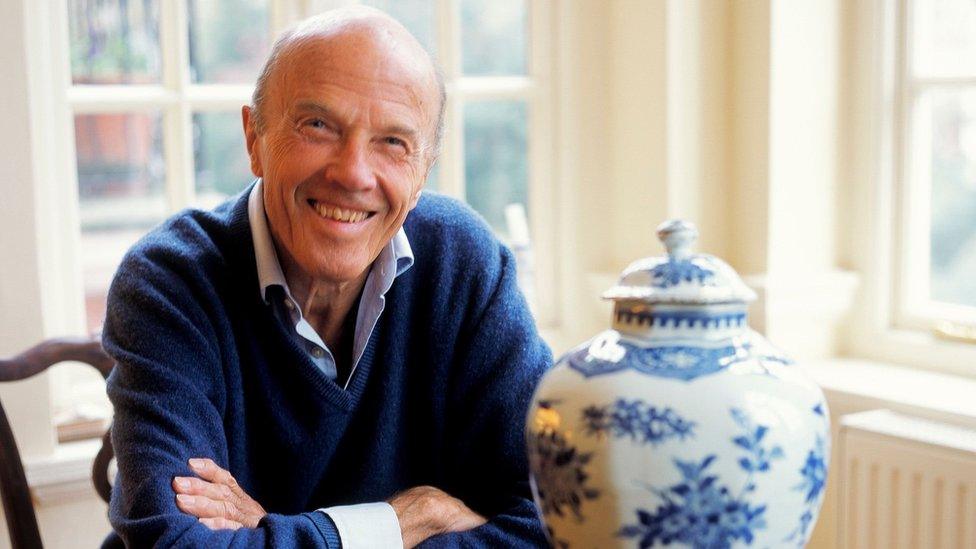
Sir Michael gifted his collection jointly to his children
Over the years, many of the pots appeared in international exhibitions and he collaborated with Chinese scholars to piece together the stories behind their designs.
In 2004, while living in Prague, Ms Butler resolved to learn as much as she could about the collection.
"I thought, if my father was to die and I hadn't learned everything he knows about these pieces, I would never forgive myself, so I came back for three summers in a row and sat with him and photographed and wrote down every single bit of information he knew about each pot."
She created a digital database but said her father had really wanted a "beautiful catalogue raisonne" - a detailed compendium of the collection.
It was only when the court case concluded and half of the museum's pieces were removed, Ms Butler decided to work on the, now published, book - Leaping the Dragon Gate.
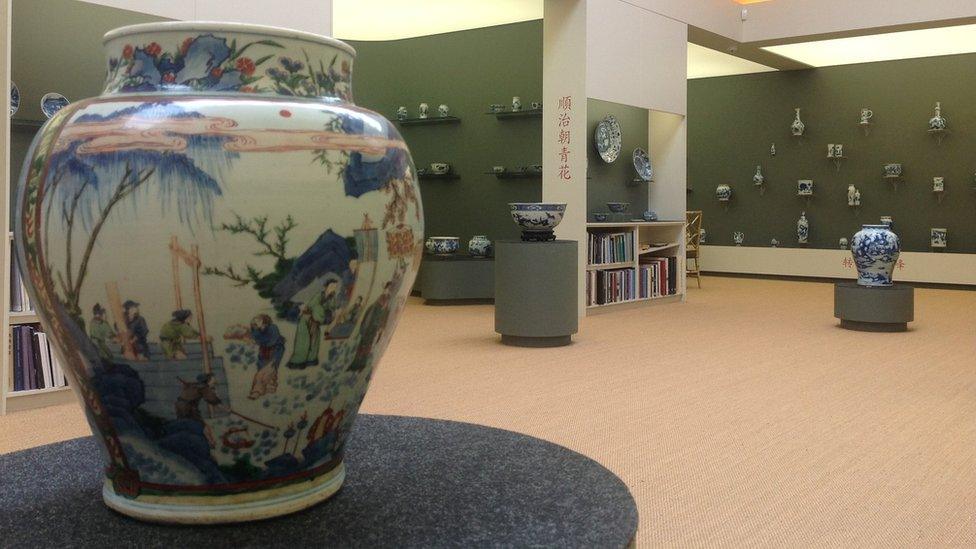
The museum's collection was divided in 2016, with the siblings taking turns to choose the pieces
Co-written with Chinese art expert Teresa Canepa over a period of three years, the huge tome tells the story of 17th Century porcelain in both English and Chinese.
"This is what we were doing in lockdown," she said, hauling the heavy hardback book across the table.
"We found every piece of porcelain between 1550 and 1722 - every piece with a date on it in the world.
"I had three PhD students helping me with this."
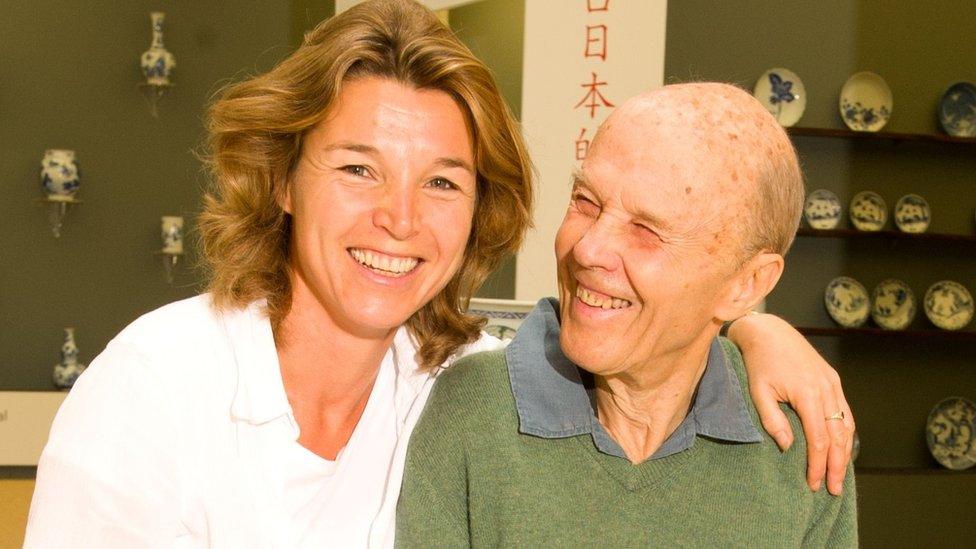
Katharine Butler created a database of the collection with her father
Even before the collection was divided, Ms Butler and her brother continued buying pieces to add to the museum.
Then, in November last year, Katharine's eldest brother James put half of his pots up for sale at auction through Christies in Hong Kong.
"That was 62 pieces and we managed to buy 16 of them," Ms Butler said. "Proportionally that's not huge but it's quite a good share.
"That was sad, especially as the sale was the day after my mother's funeral.
"It was a bit rough because it was in Hong Kong so we had to get up at five in the morning to bid, not having slept much the night before."
The total price fetched by the sale was £1.2m, according to the Antiques Trade Gazette, external.
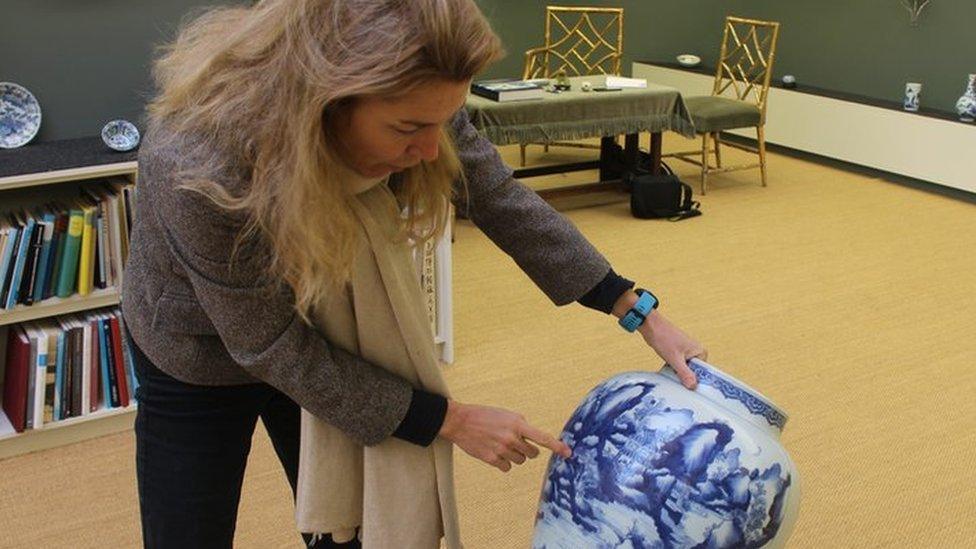
Katharine Butler gives talks at the museum and around the world
It reported that one of the 16 pieces returning to the collection was a blue and white vase decorated with birds, which fetched £114,300, twice the estimate.
Ms Butler said: "Some of the prices of the sale were really record prices and there's no question that my father's name and that provenance gave them a massive boost.
"And I do believe the work I've been doing over the last few years with the book and generally promoting the collection has borne fruit on the price, which wasn't very helpful for us."
The Hong Kong purchases are still on their way back to Dorset, but dozens of pots that adorned the shelves in Sir Michael's London flat and his country house have been added to the displays, which now boast around 650 pieces.
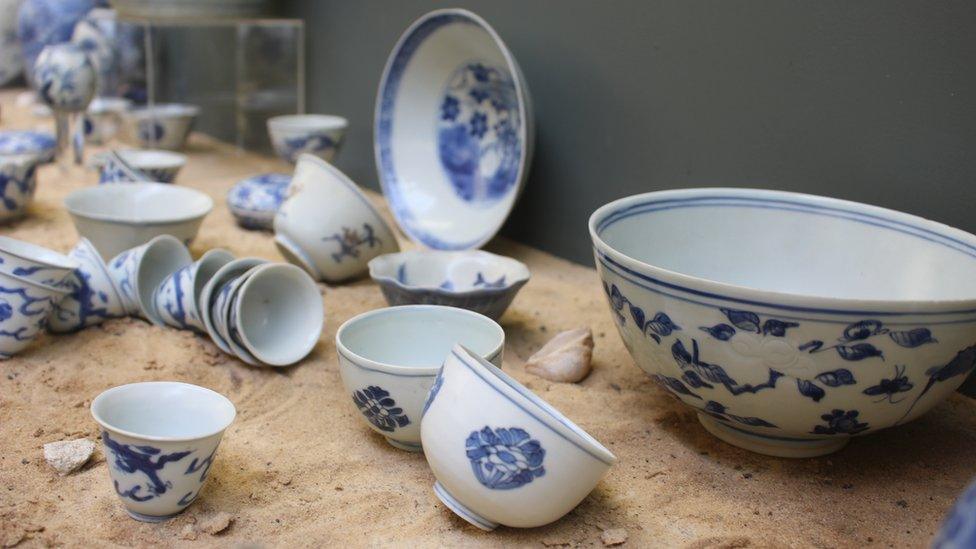
The Hatcher Wreck collection was recovered from a Chinese junk which sunk near Singapore in the 1640s
"I'm sure that the whole saga after my father's death ignited my passion more than it might have otherwise," Ms Butler said.
"The whole thing was unbelievably stressful and it was miserable for all of us, and our mother.
"Our father, was someone who believed in compromise more than anything else. He hated conflict and we were doing his legacy the most terrible disservice."
Now the museum is open again, albeit just a handful of times each year to small groups. Visitors from China and Holland are already booked in for the coming months.
Ms Butler is also due to give talks in Singapore, Hong Kong, Taiwan and Europe.
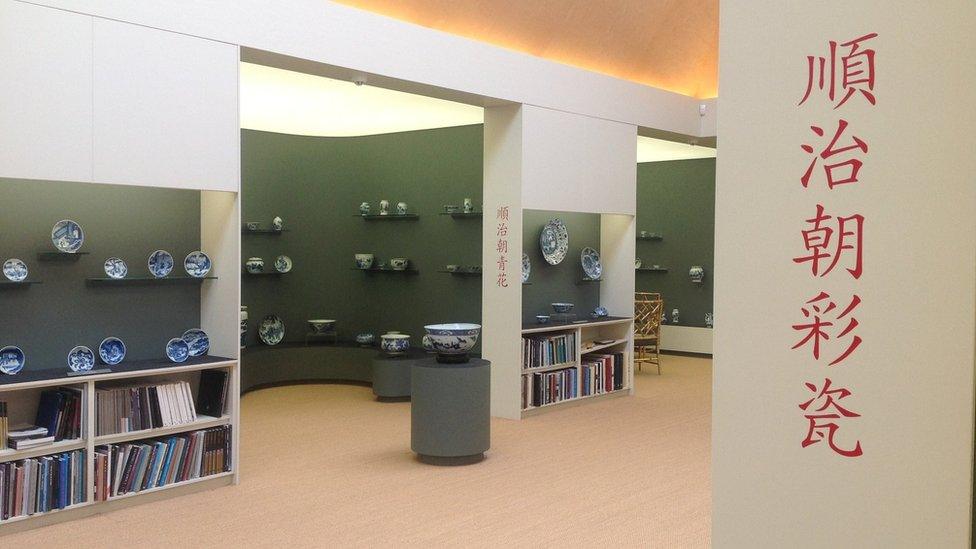
The museum has been closed for seven years
After all the heartache, effort and huge expense, it might seem inconceivable that the two siblings would ever sell the collection but, Ms Butler admits, she has not ruled it out.
"It's a huge responsibility and it's quite a hard thing to pass on to the next generation," she said.
"At the moment there is no successor.
"I have a thought that there might be someone out there who would be interested in buying the whole collection and to have a permanent gallery of the Butler Collection.
"I'd be very sad if it just got broken up and sold because it has so much to give."

Follow BBC South on Facebook, external, Twitter, external, or Instagram, external. Send your story ideas to south.newsonline@bbc.co.uk, external.
Related topics
- Published9 September 2016
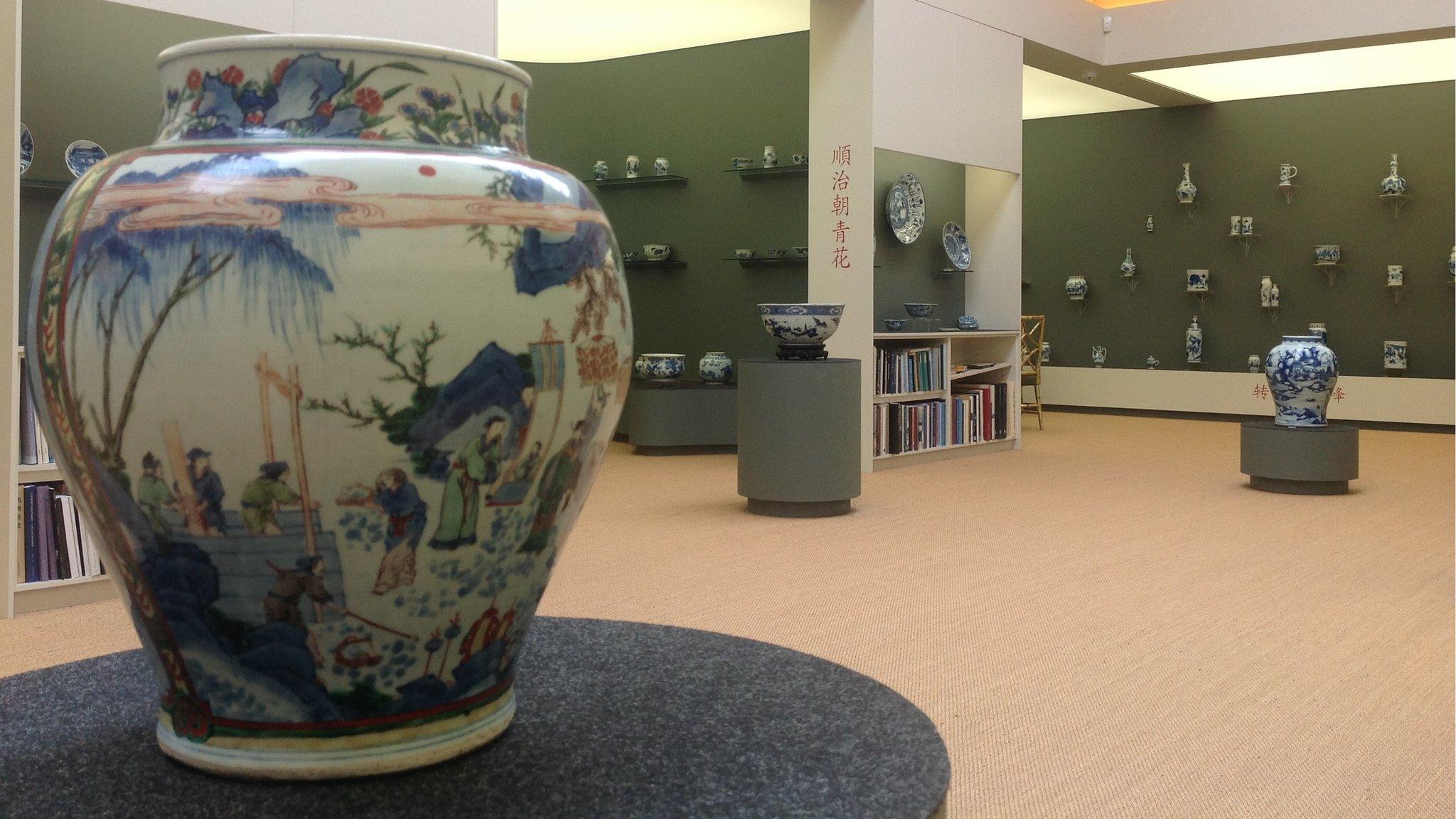
- Published23 September 2016
